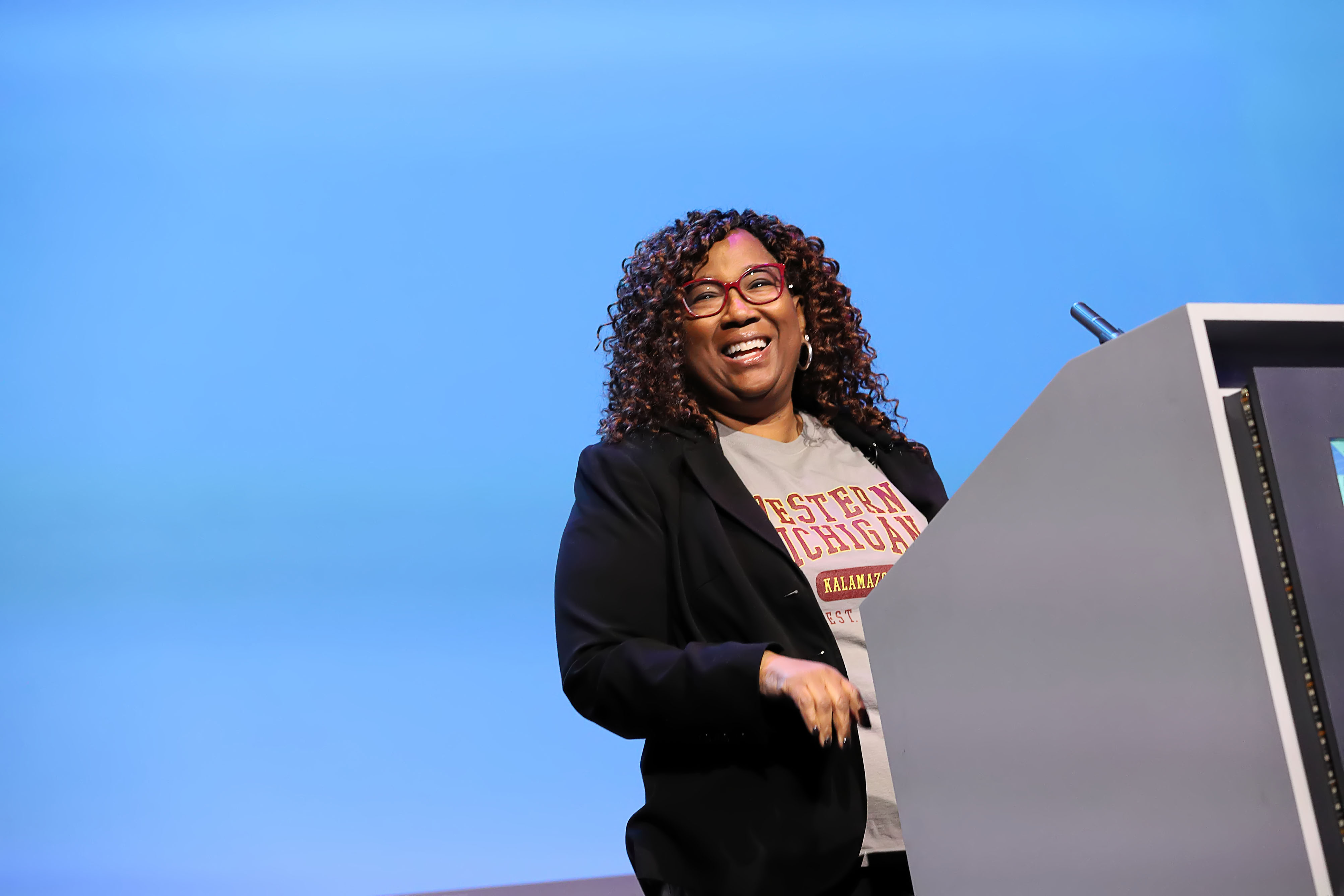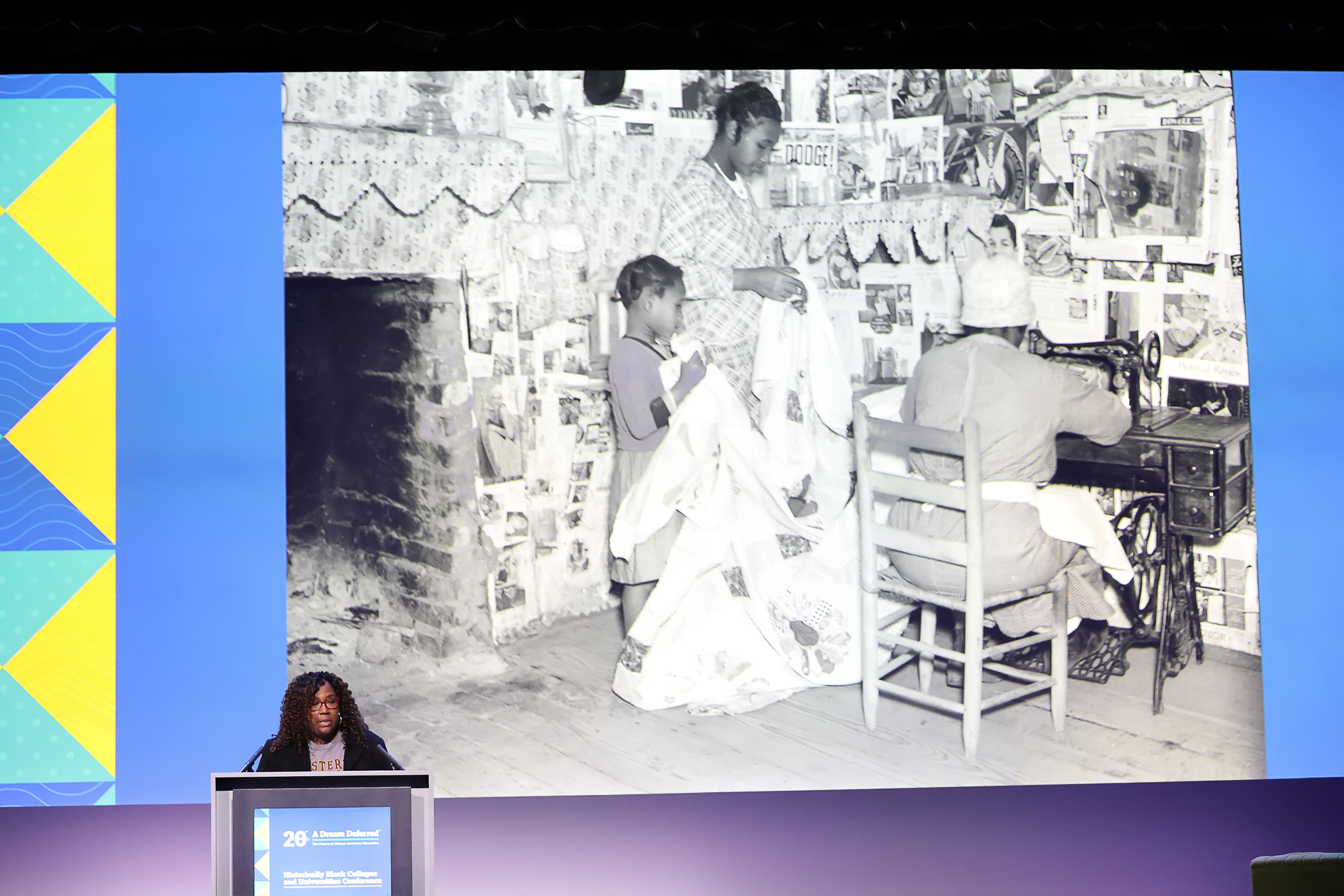A Dream Deferred | HBCU Conference 2024
A Dream Deferred Welcomes Educators Making a Difference for African American Students
In the heart of bustling New York City, within the New York Marriott Marquis, Jamila Brathwaite emerges on stage to open the A Dream Deferred™: The Future of African American Education Conference and the concurrently held Historically Black Colleges and Universities (HBCU) Conference.
The senior director of advocacy and access initiatives in the College Board Governance, Membership, and Global Higher Ed Division, Brathwaite wears her Western Michigan University shirt with all the pride one has for their alma mater.
“If you’re repping your institution, raise your hand and make some noise,” she calls out to the crowd. They respond with proud cheers.

No matter what organization you belong to, we stand united. This huge gathering of educators, administrators, faculty members, and allies in education are dedicated in empowering African American students to reach their wildest dreams.
Jamila Brathwaite, Senior Director, Advocacy and Access initiatives, College Board
In her opening remarks, Brathwaite calls attention to the special 20th anniversary of A Dream Deferred™, noting that some of the founding organizers—who orchestrated the first conference in Los Angeles for about 300 guests—were among the 1,500 attendees registered.
The 2024 conference draws inspiration from the craftwork of the Gee’s Bend quilters. During the 19th century, enslaved women residing in Alabama started a rich, cultural tradition of handstitching quilts. The quilts not only served as warmth but also documented family history. Despite lacking agency and freedom, they expressed their voice through their remarkable, abstract quilts.
“Their artistry emerged from challenging circumstances, embodying the spirit of history, resilience, and resourcefulness,” Brathwaite explains. “The Gee’s Bend quilters used their ingenuity, their creativity, and their shared knowledge—and that’s what we do at A Dream Deferred. We unite professionals, and they symbolize the creative and collaborative spirit of quilting.”

As a middle school student, Brathwaite recalls how her teachers surrounded her with care and guidance to help her overcome her deficiencies in math. “They worked with me every day that they could after school. They wanted to uplift me.” With their help, she was able to attend the best high school in Detroit.
In high school, it would be her radio and television production teacher who encouraged her to find her voice and pursue higher education at Western Michigan University. The audience applauds to hear Brathwaite acknowledge that she’s the first person in her family to receive a degree.
Her father was born on a plantation in Arkansas, where her grandparents, her father’s older siblings, and cousin “endured a meager existence sharecropping and as cotton farmers oppressed by the constraints of Jim Crow.” Most of her relatives then lacked the opportunity to attend school beyond the sixth grade.
“I’m one generation removed from the cotton field. I’m one generation from those people denied access to education. And this exemplifies the transformative power of education that’s capable of not only shaping a little brown girl from Detroit but also altering the trajectory of entire families.”
The names of four of Brathwaite’s teachers appear on the screen behind her. Adoringly, she looks up at the names—Dr. Roslyn McClendon, Ms. Austerine Hambrick, Ms. Karen Knoppow, and Mrs. Frances Hamburger—and thanks them for not letting “this little brown girl fall through the cracks.”
She says to the attendees:
I hope that everyone in the audience can also think back and find a teacher in your memory who lifted you up—and thank them. And if you didn’t have that teacher in your life, I hope that you’ll become that educator that you wanted to have. Because you can be the change.
Jamila Brathwaite, Senior Director, Advocacy and Access initiatives, College Board
She closes with a quote from Dr. Asa G. Hilliard: “I’ve never encountered children in any group who are not geniuses. There is no mystery on how to teach them. The first thing you do is treat them like they’re human beings. The second thing you do is love them.”




